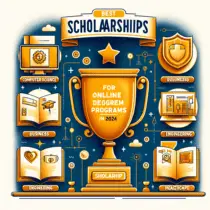Imagine being the first in your family to attend college. The excitement, the pride, and the hope for a brighter future are often accompanied by challenges and uncertainties. First-generation college students—those whose parents did not attain a college degree—face unique hurdles on their educational journey. Fortunately, scholarships specifically for first-generation college students are helping to break these barriers and make higher education more accessible.
The Importance of Scholarships for First-Generation College Students
College tuition has been steadily rising over the years, making it increasingly difficult for many families to afford higher education. For first-generation students, this financial burden can feel even heavier. Their families may lack the experience and resources to navigate the complex world of college applications, financial aid, and scholarship opportunities.
Scholarships tailored to first-generation students play a crucial role in leveling the playing field. These scholarships not only provide much-needed financial support but also offer recognition and encouragement to students who are breaking new ground in their families.
Types of Scholarships Available
University-Specific Scholarships
Many universities across the United States offer scholarships specifically for first-generation students. These scholarships often have eligibility criteria based on academic performance, leadership qualities, community involvement, and financial need.
- University of California (UC) System: Several UC campuses provide specific scholarships targeting first-generation students.
- University of Michigan: The First-Generation College Student Scholarship offers substantial financial support to eligible applicants.
- Harvard University: The Harvard First Generation Program provides resources including mentorship and financial aid options for first-gen students.
Corporate Scholarships
Numerous corporations recognize the importance of supporting education and have created scholarship programs aimed at helping first-generation college students achieve their goals.
- Coca-Cola Scholars Foundation: Offers significant scholarships to high school seniors who demonstrate leadership skills and a commitment to community service.
- Dell Scholars Program: Focuses on low-income households where applicants must be participating in a Michael & Susan Dell Foundation-approved college readiness program.
Private Foundations and Organizations
Many private foundations dedicate funds specifically to help first-generation college students succeed.
- The Bill & Melinda Gates Foundation: Through its Gates Millennium Scholars Program, it provides full funding for minority students who are also the first in their families to attend college.
- Jack Kent Cooke Foundation: Offers undergraduate transfer scholarships focusing on providing comprehensive educational opportunities.
Local Community Scholarships
Many local businesses and community organizations offer smaller but impactful scholarships that focus on supporting local residents who are aspiring to be the first in their family to go to college.
- Rotary Clubs: Across various regions offering diverse scholarship programs tailored towards local needs.
- Chambers of Commerce: Many Chambers sponsor scholarships specific to encouraging local youth in pursuing higher education.
Applying for First-Generation Scholarships
Applying for these specialized scholarships typically involves several steps similar across different programs:
- Research Opportunities: Start by identifying which schools or organizations offer these scholarships. Universities’ financial aid offices or websites like Fastweb or Cappex can be great starting points.
- Meet Eligibility Requirements: Ensure you meet all academic qualifications as well as any other criteria such as leadership roles or community service involvement detailed by each scholarship provider.
- Prepare Application Materials:
- Personal Statement/Essay: Often required detailing personal experiences as a first-gen student along with aspirations.
- Transcripts: High school GPA records showcasing academic performance.
- Letters of Recommendation: From teachers/mentors attesting to character qualities along with scholastic achievements.
- Submit Applications Timely: Adhering strictly to submission deadlines is critical – late entries generally aren’t considered!
- Interview Process (If Applicable): Some applications might necessitate undergoing interview rounds emphasizing further assessment through individual interactions conducted either virtually or in-person, based on program specifics.
- Follow Up Regularly: Ensure you track your application status and respond to any follow-up requests promptly.
The Impact Beyond Financial Support
While monetary assistance is a significant benefit, scholarships for first-generation students provide much more than financial aid. They offer psychological boosts by building confidence, motivating perseverance amidst adversities, and enhancing resilience. These scholarships foster self-belief, which is indispensable in overcoming formidable obstacles and successfully navigating complex academic environments.
Networking Opportunities and Mentorship: Many scholarship programs include networking opportunities and mentorship initiatives. These programs connect students with peers, mentors, and professionals who can provide guidance, support, and inspiration. This network can be invaluable in helping students transition into their careers and navigate the challenges they may face.
Personal and Professional Development: Scholarships often come with access to workshops, seminars, and training sessions that contribute to personal and professional growth. These resources equip students with essential skills, preparing them to meet the multifaceted demands of the contemporary workforce.
Conclusion
Scholarships represent lifelines enabling economically disadvantaged yet academically ambitious individuals to attain dreams previously deemed unattainable. They forge pathways to upward mobility and societal contribution, promoting inclusive growth and equitable access to education. The scholarships listed above provide robust starting points for exploring diverse initiatives that benefit prospective future leaders, innovators, and thinkers. By facilitating educational upliftment and socio-economic advancements, these scholarships ultimately pave the way for brighter, more inclusive futures for all.





